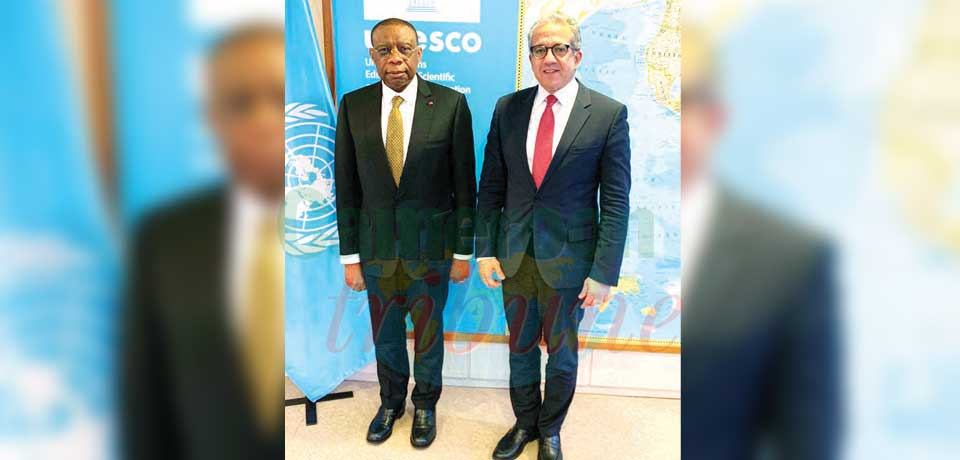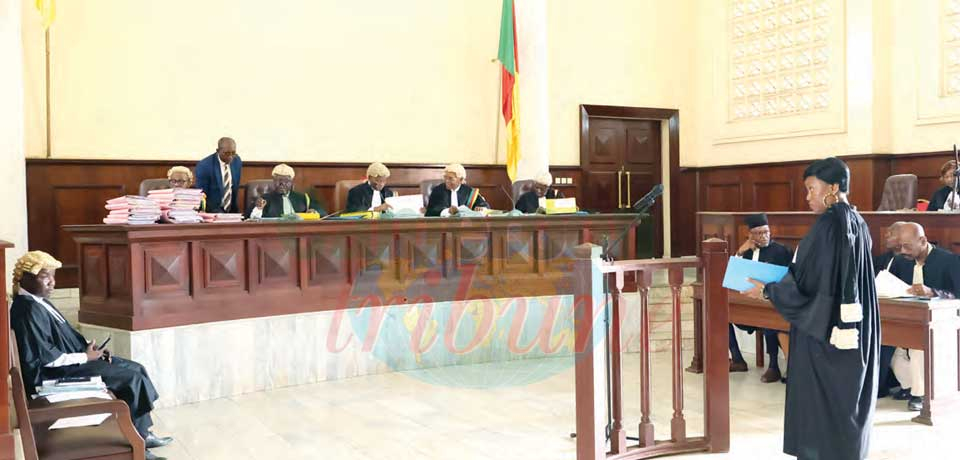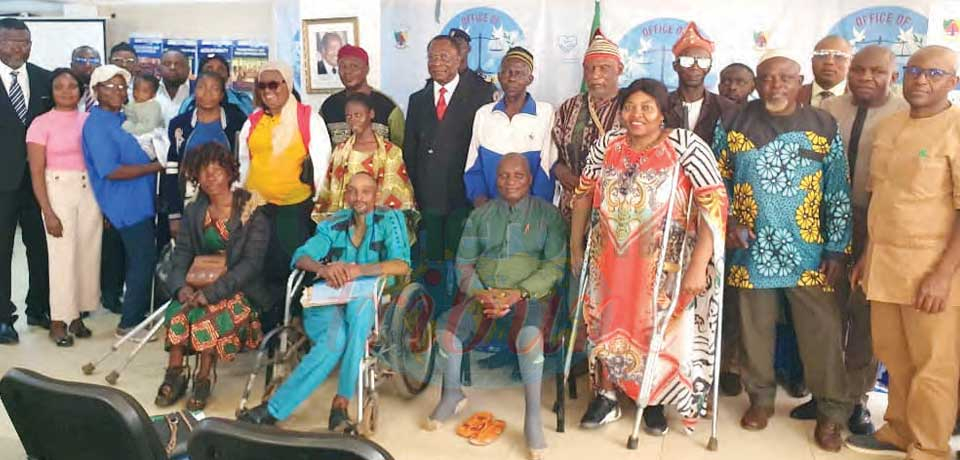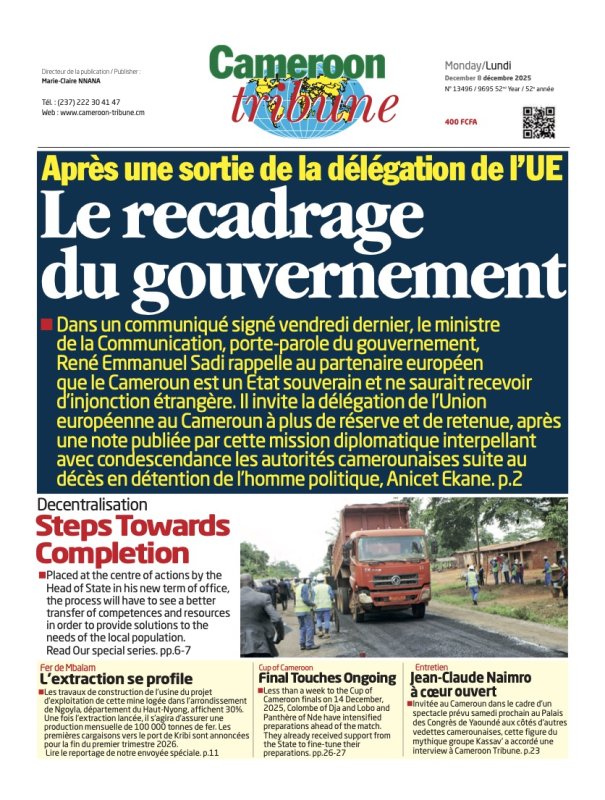Protecting State Sovereignty
- Par Carine Tsiele
- 01 Feb 2018 10:53
- 0 Likes
Commentary
The confirmation by the Minister of Communication, Issa Tchiroma Bakary on Monday 29 January that those arrested in Nigeria on 5 January, 2018 in connection with unrest in the North West and South West Regions had been brought to Cameroon must have sent shock waves down the spine of those who were already nursing hopes of functioning out of Cameroon. But the realities of the unfolding events are easy to understand.
If the history of the Biafra war of independence is far for some to recall, recent joint efforts by Cameroon and Nigeria in tackling the Boko Haram extremist sect are fresh enough. Attempts by members of the sect to create a caliphate in north eastern Nigeria are failing thanks to huge efforts made by Cameroon under the leadership of President Paul Biya.
Thus, after weeks of speculations and wild media and social media reports on the fate of those arrested in Nigeria on 5 January, 2018, it has now finally been official. Ayuk Tabe and 46 of his partners are in the hands of government authorities in Cameroon following an International warrant of arrest issued by government against them.
Cameroon and Nigeria have had several Joint Border Security meetings with the police, defence forces and other security as well as administrative officials taking part. With the growing threats from insurgents, such endeavours were dusted from the drawers and meetings multiplied to track down all those who could in any way destabilise any of the countries.
Consequently, when the teachers and lawyers’ trade union grievances heightened in 2016 and were transformed into political trump cards calling for a modification of the form of the State, it became obvious that the outcome would never be the same. Even worse, countless words of caution from the Head of State and calls for dialogue, no matter the form it takes, have largely been ignored by hardliners.
Addressing Cameroonians on 10 February, 2017 ahead of the Youth Day celebration, President Biya recalled steps being taken to tackle the concerns raised by teachers and Common Law lawyers, but insisted that;
“It is also unacceptable to hold the education and future of our children hostage, in the vain hope of pushing through political demands.” Such warning and others ignored gradually led to his declaration after the killings of elements of the defence forces that it was clear to all that Cameroon is under attack and those responsible had to be ready to answer before the law courts.
People thought that finding refuge in Nigeria could mean playing safe. Of course, that was without knowing inherent ententes binding the leaders of...
Cet article complet est réservé aux abonnés
Déjà abonné ? Identifiez-vous >
Accédez en illimité à Cameroon Tribune Digital à partir de 26250 FCFA
Je M'abonne1 minute suffit pour vous abonner à Cameroon Tribune Digital !
- Votre numéro spécial cameroon-tribune en version numérique
- Des encarts
- Des appels d'offres exclusives
- D'avant-première (accès 24h avant la publication)
- Des éditions consultables sur tous supports (smartphone, tablettes, PC)














Commentaires